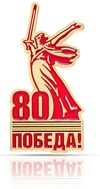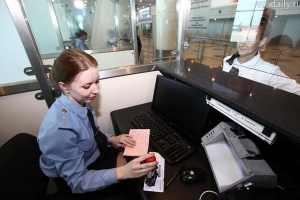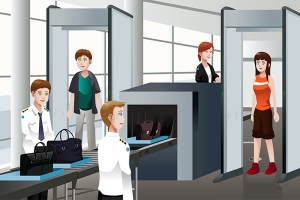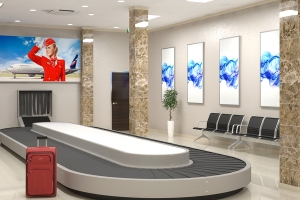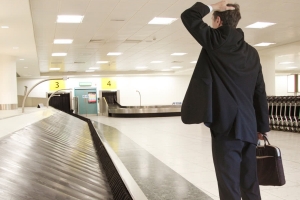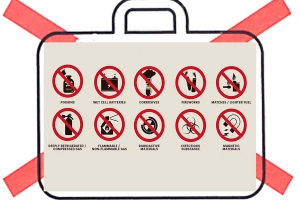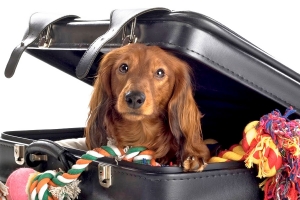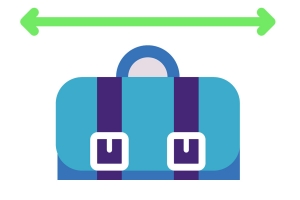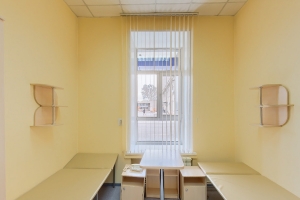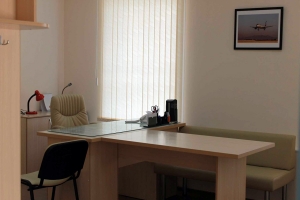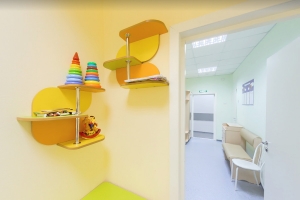Information for passengers with disabilities
The lounge for passengers with reduced mobility is located on the first floor in the left wing of the terminal building. There is a medical center in the same block. For more information on the location of the rooms, see the airport terminal scheme.
The lounge for passengers with reduced mobility includes a recreation area and a kitchen area equipped with everything necessary. There is a call button for emergencies; using the button you can contact the airport staff to receive prompt assistance.
Special parking spaces, separate hygiene rooms, and special wall panels with call buttons have been created on the airport territory to ensure the principles of a barrier-free environment. Airport staff provides necessary assistance in going through pre- and post-fllight formalities: passenger and baggage check-in, security screening, boarding, or meeting on the plane. All services for passengers with reduced mobility are provided free of charge.
Services to passengers with disabilities on the territory of the airport are provided free of charge according to the requirements of Order No. 24 of the Ministry of Transport of the Russian Federation dated 15 February 2016 On Approval of the Procedure for the Provision of Services at Airports and on Aircraft to Passengers with Disabilities.
The infrastructure of Abakan International Airport is being improved according to the needs of passengers with disabilities.
At Abakan Airport, passengers with disabilities are provided with the following services free of charge:
1. Accompanying and assistance at the airport (including at the places of embarking and disembarking from a vehicle), passenger and baggage check-in, passing pre-flight and post-flight inspections, border and customs control, boarding and disembarking from an aircraft, baggage claim.
2. Provision of special mobility aids (including wheelchairs) for passengers with disabilities at the airport.
3. Duplication of sound and visual information provided at the airport and necessary for the acquaintance of passengers with disabilities.
4. Assistance while boarding and disembarking from an aircraft for passengers with disabilities who are unable to move independently.
5. Provision of a wheelchair for temporary use for passengers with disabilities unable to move independently in the event of a delay in the delivery of a special vehicle belonging to a passenger to the destination airport or airport of intermediate landing, or loss or damage (deterioration) of this vehicle during air transportation.
Wheelchairs are located on the first floor of the airport in the air transportation service and the lounge for passengers with reduced mobility.
Please read the information below. It will help to make your trip more comfortable and enjoyable.
Preparation for the trip.
If you or your loved ones are planning an air flight and belong to this category of passengers, please, when booking and purchasing an air ticket, be sure to inform what special services and assistance you will need at the airport and during the flight. The need for these services should be provided to the air carrier or the ticket agent at the time of purchase, but no later than 48 hours before departure. If the passenger's physical condition threatens the safety of the flight, the carrier has the right to refuse carriage.
According to Art. 25 of the Federal Aviation Regulations "General Rules for Carriage of Passengers, Baggage and Cargo by Air and Requirements for Service of Passengers, Consignors, Consignees", the passenger must agree with the carrier the transportation of:
- Severely ill passenger;
- Passenger on a stretcher;
- Deaf passenger without an accompanying person;
- Blind passenger with a guide dog;
- Unaccompanied passenger, blind and/or deaf, who will be transported under the supervision of the carrier;
- Passenger with reduced mobility while using air transport and/or whose condition requires special attention during service (passenger with reduced mobility).
Service for passengers arriving at Abakan Airport.
At the check-in for the flight arriving at Abakan Airport, be sure to inform us what special services and assistance you will need at the airport upon arrival. If you checked in for the flight using mobile check-in, from the airline's website, or at the airport at a self-check-in kiosk, contact the check-in counter of the departure airport to remark about the services you need at the airport of arrival.
After the aircraft has landed at Abakan Airport, according to the rules established in civil aviation, assistance and escort services will be provided to you at the end of the disembarkation of all passengers.
You will be assisted in disembarking from the aircraft, baggage claim, and, if necessary, accompanied to road transport.
Service for passengers departing from Abakan Airport.
Upon arrival at the airport.
There are parking spaces in front of the terminal building where you or a person accompanying you can leave your car. Free parking spaces are used by passengers of disability groups 1 and 2. If you need help with escorting from a parking space, please contact us via e-mail: This email address is being protected from spambots. You need JavaScript enabled to view it.
Upon arrival at the airport, if you wish, you can independently go through registration and pre-flight formalities.
If you need help, there are buttons to call the airport medical center employees at the entrance of the terminal building, in front of the security screening area, and in the area for passengers with reduced mobility. Also, call buttons are located on the second floor of the terminal building on the staircase in the right wing and toilet rooms for passengers with reduced mobility.
Check-in.
Check-in of passengers with disabilities for flights of all airlines is performed out of turn. You will be provided with assistance in passing passenger and baggage check-in, border and customs control, and baggage claim if necessary.
The free baggage allowance and its dimensions as well as the restrictions for the carriage of individual vehicles on the aircraft are established by the airline. An electrically powered wheelchair used by a passenger is checked-in baggage at the check-in.
According to ICAO «Technical Instructions for the Safe Transport of Dangerous Goods by Air», passengers using a wheelchair with liquid electrolyte are required to carry a set of keys/tools for disconnecting wheelchair battery terminals and battery packaging. Disconnection and connection of battery terminals of an electrically powered wheelchair are carried out by passengers on their own or by an airport employee at the request of a service need.
A guide dog accompanying a visually impaired passenger is transported free of charge over the free baggage allowance. A guide dog must have a collar and a muzzle and must be tied to the seat at the feet of the accompanied passenger. The passenger must present a document confirming disability and a document confirming the special training of the guide dog to the carrier.
Dog walking is carried out on the territory adjacent to the terminal square (park) according to Rules for keeping domestic and farm animals in the city of Abakan, approved by the Decision of the Council of Deputies of the city of Abakan No. 318 dated 3 March 2016.
Waiting and boarding.
There is an area for passengers with disabilities to wait for boarding.
If you are travelling with children, you can use the baby care room.
If you need medical assistance and specialist advice, please contact the medical center on the first floor of the terminal.
Accompanying while boarding is carried out by the airport staff depending on the state of health of passengers with disabilities.
If you have questions related to the service of passengers with disabilities at the airport, please contact us via e-mail: This email address is being protected from spambots. You need JavaScript enabled to view it.





